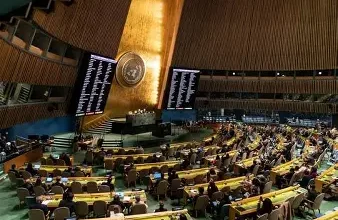Lead
FG unveils new framework to mitigate flood disasters

The Federal Government has taken a significant step towards mitigating the impact of floods by elevating flood prevention to a national security priority.
The move comes with the unveiling of a new Anticipatory Action Framework on Floods, designed to shift disaster response from reactive to early and coordinated action.
The framework incorporated scientific and traditional data-gathering methods, triggers for early action, and a consolidated budget for flood response.
Its primary goal is to build resilience in states and communities prone to seasonal floods.
By adopting this proactive approach, the government aimed to reduce the devastating effects of floods on lives and property.
During the official submission of the draft framework and consolidated budget by the Anticipatory Action Task Force (AATF) at the Presidential Villa on Wednesday in Abuja, Vice President Kashim Shettima emphasised the importance of believing in science and pursuing a roadmap for disaster prevention.
He said, “Disasters are security issues. Over the years, we have only been reacting instead of practicing proactive disaster management.
”By seizing this initiative, and believing in science, we have carried out all the due processes of finding a roadmap.”
The Vice President praised President Bola Tinubu for his leadership on disaster preparedness and the Office of the National Security Adviser (ONSA) for coordinating the process.
In his remarks, the Minister of Humanitarian Affairs and Poverty Alleviation, Professor Nentawe Yilwatda, highlighted the significance of shifting from reaction to recovery and from losses to prevention.
He noted that the new framework represented a paradigm shift in disaster management, emphasising that allocating just one per cent of the losses incurred from floods could save much more than what is lost.
The National Security Adviser (NSA), Mallam Nuhu Ribadu, also stressed the need for swift and proactive action, saying that “often, natural disasters are outside of our control, but reaction is ours.”
On her part, the Special Assistant to the President on Humanitarian Affairs and Development Partners, Mrs Inna Audu, provided details of the work done by the task force.
She explained that the group had followed a defined timeline since March, starting with the inauguration of the AATF, conducting a validation workshop, and completing data collection through scientific and traditional methods for evidence-based decision making.
The unveiling of the Anticipatory Action Framework on Floods marked a significant milestone in Nigeria’s efforts to mitigate the impact of floods.
By prioritising flood prevention and adopting a proactive approach, the government aimed to reduce the devastating effects of floods on lives and property.
The success of the initiative would depend on effective implementation, stakeholder engagement, and the allocation of necessary resources.
A Strategic Communication Working Group has also been created under the NSA’s office to implement a tiered communication and advocacy plan based on information from the Trigger Group.



